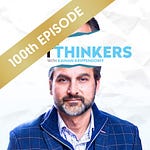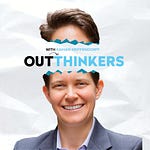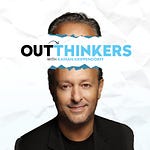Jonathan Knee is a of Professional Practice in Media and Technology and Co-Director of the Media and Technology Program at Columbia Business School, where he has taught Media Mergers and Acquisitions and Strategic Management of Media.
He serves as a Senior Advisor at Evercore, an investment banking advisory firm. Before joining here as Senior Managing Director in 2003, he was a Managing Director and Co-head of Morgan Stanley’s Media Group and was previously Publishing Sector Head in the Communications, Media and Entertainment Group at Goldman Sachs.
Jonathan also serves on the boards of New Alternatives for Children, the National Women’s Law Center, and the Citizens’ Committee for Children of New York and is a Member of the Council on Foreign Relations.
His writing has appeared in the Wall Street Journal, New York Times, Washington Post, Los Angeles Times and The Atlantic.
He is the author of Class Clowns: How the Smartest Investors Lost Billions in Education, The Accidental Investment Banker: Inside the Decade that Transformed Wall Street, co-author of The Curse of The Mogul: What’s Wrong With the World’s Leading Media Companies? and his most recent book, The Platform Delusion: Who Wins and Who Loses In the Age of Tech Titans, packed with real-word insights, gathered on the streets, from decades of feasting or fasting based on the accuracy of his prediction of which companies will thrive and which will fall.
*Note: We condensed this original hour-long discussion into a format to fit this podcast series, but be on the lookout for the full-length version in the coming weeks.
In this podcast, he shares:
The three competitive advantages discussed in his framework from The Platform Delusion
Why you should NOT be looking become a platform, as it seems nearly every entrepreneur and incumbent wants to do—and what you should be looking for instead
How to build your competitive moat by creating multiple reinforcing sources of advantage
Why Netflix is NOT a platform, though many think it is
What’s better: building “network affects” or “scale advantages?”
And he starts exploring what it takes to compete in an ecosystem
The difference between a platform and an ecosystem
__________________________________________________________________________________________
" [An] Ecosystem is really about the overall business environment. Who are the constituents? How do they interact with each other? Platform is a specific business model that connects some part of an ecosystem. But to me what's most interesting about the connection between the structure of the ecosystem and the question that we were just talking about...is: Is the platform a good business or not?"
-Jonathan Knee
__________________________________________________________________________________________
Episode Timeline:
00:00—Introducing Jonathan + The topic of today’s episode
2:46—If you really know me, you know that....
3:20—What is your definition of strategy?
5:09—Could you talk to us to your ideas behind "platform delusion"?
7:49—What makes a business have a competitive advantage?
9:32—What exactly is a platform, and what is its core value?
12:19—Network effects vs. scale
14:18—Creating customer captivity as a digital company
16:09—Understanding fixed costs and its advantages in the digital world
17:52—When and what kind of data matters, and when it doesn't offer much value
19:30—What is the difference between a platform or an ecosystem, and how do you know which resource to tap into?
20:25—How can people connect with you and keep learning with you?
__________________________________________________________________________________________
Additional Resources:
Columbia University Page: https://www8.gsb.columbia.edu/cbs-directory/detail/jk2110
Twitter: https://twitter.com/Jonathanaknee














Share this post